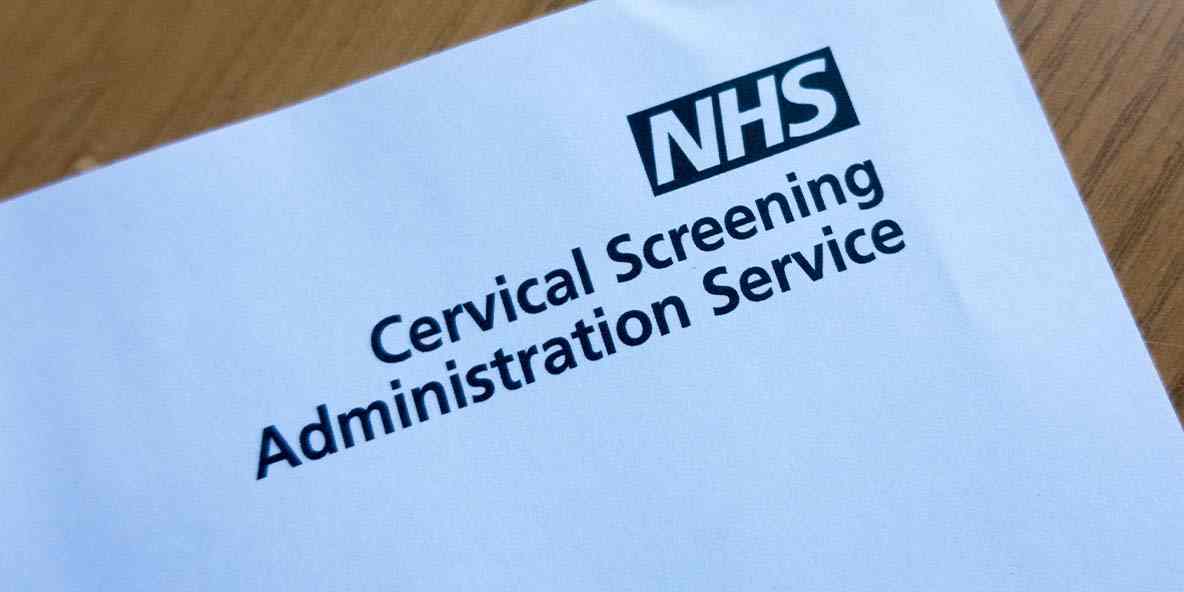
The NHS has issued a call for anyone eligible for cervical screening to come forward for a potentially life-saving appointment, with nearly a third, around 4.6 million, not taking up their latest test.
The plea from senior NHS medics comes on the back of the health service sending a record number of invites for cervical screening in the last year, as part of its ambition to eradicate the cancer through a combination of vaccination and early identification.
More than five million invites were sent in the last full year (2021/22) – up by over a tenth (10.5%) on pre-pandemic levels.
Screening helps prevent cervical cancer by using a highly effective test to check for high-risk human papillomavirus (HPV), which is found in over 99% of all cervical cancers and which may cause abnormal cells to develop in the cervix. These abnormal cells can, over time, turn into cancer if left untreated.
Around 2,700 women are diagnosed with cervical cancer in England each year, but the NHS screening programme helps save around 5,000 lives each year.
GP and NHS Interim Medical Director for Primary Care, Dr Kiren Collison said:
Quote
“We have made great progress on our Cervical Screening Programme and the combined effects of the HPV vaccine and the new, more sensitive way of screening for cervical cancer means that we have the opportunity to eliminate cervical cancer altogether.
“Having the potential to completely eradicate a disease that affects thousands of people every year is remarkable, but in order to do this, it is vital that people take up the offer of a test – so if you have received an invitation, or missed your last screening, don’t wait to make an appointment, put your health first and book an appointment with your GP practice or sexual health clinic today – getting checked can save your life.”
The plea from senior NHS medics comes as a cervical cancer charity, Jo’s Cervical Cancer Trust, launches its annual Cervical Cancer Prevention Week (23 – 29 Jan 2023) to raise awareness of cervical cancer and drive uptake of the NHS Cervical Screening Programme.
Screening involves taking a small sample of cells from the cervix and looking for high-risk human papillomavirus (HPV) that could develop into cervical cancer if left untreated.
Eligible people aged between 25 to 64 are invited by letter every 3-5 years depending on their age, or more frequently if HPV or cell changes are detected.
National Clinical Director for Cancer, Professor Peter Johnson, said:
Quote
“Screening is an effective way to prevent cervical cancer developing or to catch it at a very early stage, which is why it is especially important that people attend their screening appointments.
“There are lots of reasons why somebody might not want to come forward – embarrassment, inconvenience, or uncertainty – but please speak to a healthcare professional if you are unsure.
“It’s also important to understand that HPV can remain undetected for many years before later going on to cause abnormal cells which can lead to cancer, so even if you’ve previously had a negative test, it is vital that you attend your next one.”
The NHS achieved an increase in cervical screening in 2021/22 with 3.5 million women aged 25-64 being screened, up 9.4% from the previous year (19/20) when 3.2 million were screened.
Having HPV does not mean someone has or will develop cervical cancer; it is a common virus that most people have at some point in their life without knowing it and usually goes away on its own. If cell changes are identified early, cervical cancer can be prevented from developing.
Minister for Women’s Health Maria Caulfield said:
Quote
“I have seen first hand through working as a nurse in a cancer unit how important it is to detect this cruel disease early and the NHS cervical screening programme is an vital way of detecting risk of and preventing cervical cancers.
“We’re improving the cervical screening process, including opening up 24/7 laboratory screening and expanding the locations options available – so people can get their results faster and their tests easier.
“I encourage those eligible to attend their potentially life-saving screening when invited.”
The NHS is also trialling self-screening for cervical cancer at home, with the results of that pilot set to inform whether it should be rolled out nationally.
The NHS also offers the HPV vaccination to all children aged 12 and 13 at school in Year 8, and up to 25 years through GP practices for those who may have missed vaccination in school, to protect against the most common types of HPV. It is still important to attend a cervical screening appointment when invited because the HPV vaccine does not protect against all strains of HPV.
Cervical screening is available by appointment at local GP practices and at some local sexual health services.







Recommended Comments
There are no comments to display.
Create an account or sign in to comment
You need to be a member in order to leave a comment
Create an account
Sign up for a new account in our community. It's easy!
Register a new accountSign in
Already have an account? Sign in here.
Sign In Now